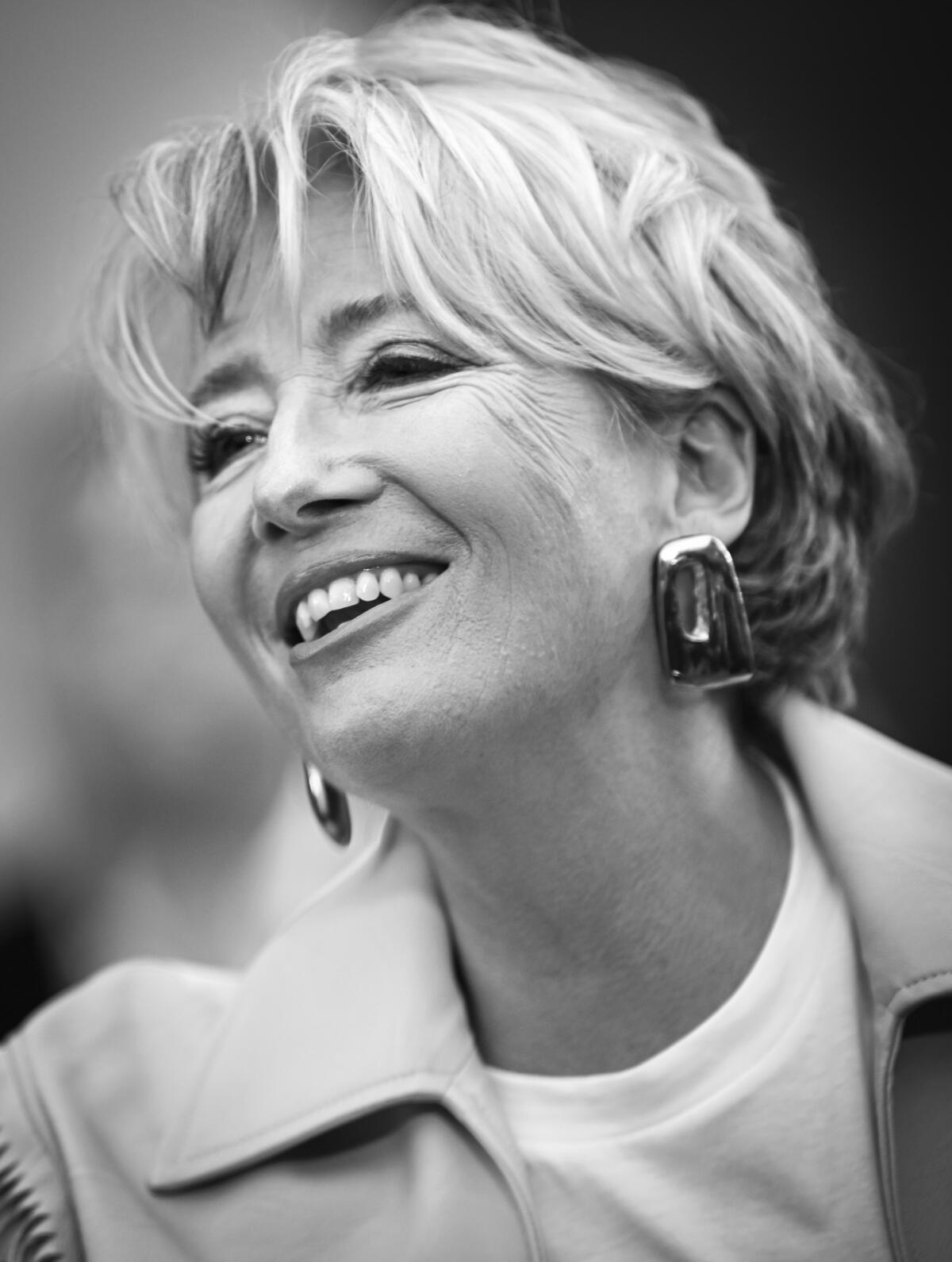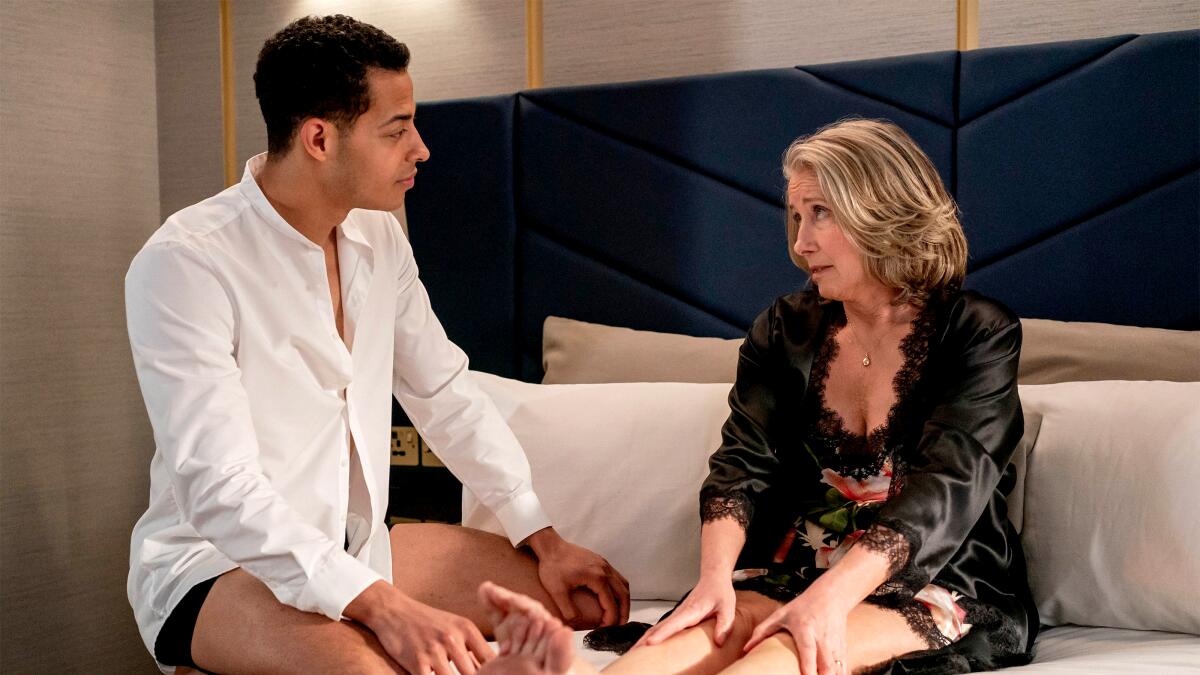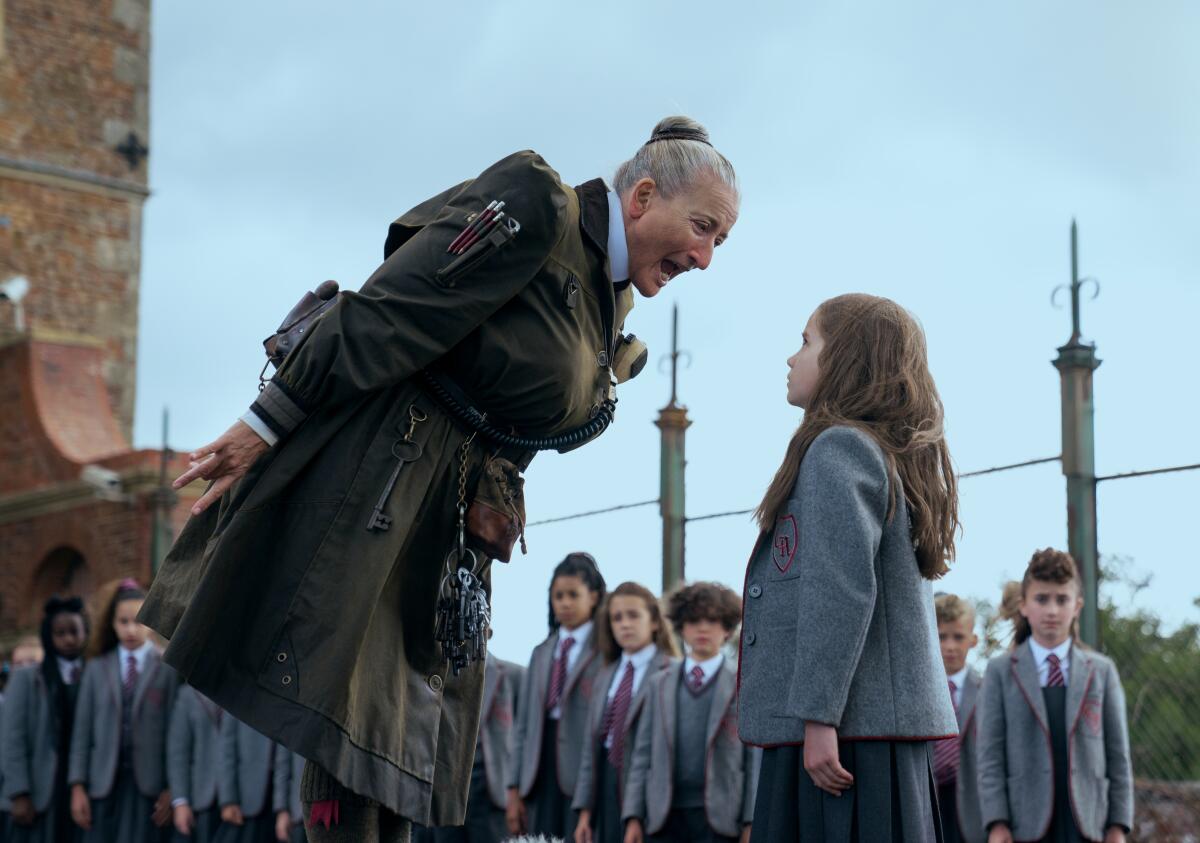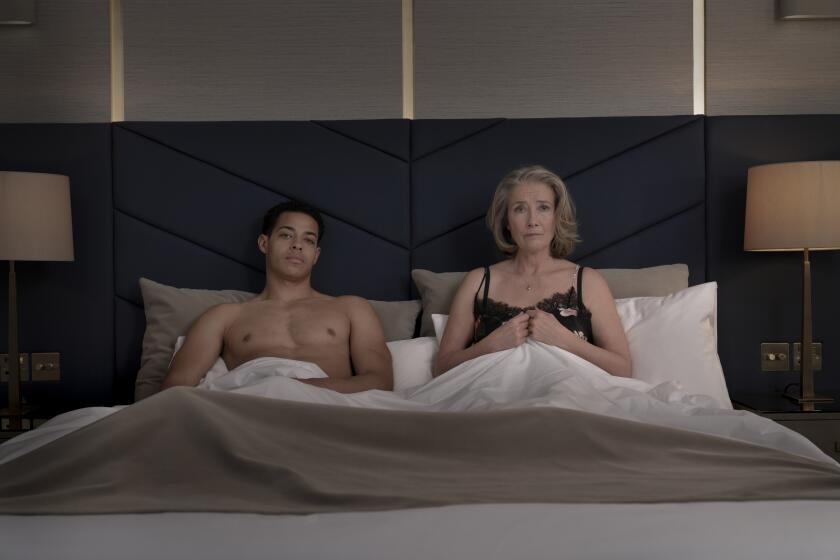How Emma Thompson steps up to be the hero she never had in ‘Good Luck to You, Leo Grande’

- Share via
Emma Thompson is not afraid to be … anyone. On camera, at least. And that fearlessness extends to her two most recent roles — as a horrific headmistress in “Matilda the Musical” and as a retired teacher coming out of her shell in “Good Luck to You, Leo Grande.” With Thompson, 63, it was ever thus: Whether wearing period costumes in “Sense and Sensibility” or “Howards End” (she won an Oscar for each, for screenwriting and lead actress respectively), shaving her head as a cancer patient in “Wit,” or helping Arnold Schwarzenegger get pregnant (“Junior”), Thompson elevates every role she inhabits with laser-focused wit and charm that simultaneously brooks no nonsense.
She sat down via Zoom with The Envelope to talk about getting naked, breaking taboos and finding Marlon Brando as a role model.
“Leo Grande’s” Nancy is one of those parts women have said for years don’t exist — a lead role as a sexual being for women over a certain age. What about it challenged you?
I’ve never seen Nancy’s character on-screen, except maybe in the odd European film by Fellini. They won’t say to Charlize Theron, “It’s so brave of you to take your clothes off.” They tell me it’s brave because I’m old and it’s not acceptable. I just hate this whole thing we’re brought up with. I worry desperately for young 8-year-old girls going, “I hate my thighs.” Women waste so much time and energy on this nonsense, this brainwashing. If you want to change it, you have to challenge it.
Nude rehearsals, deep trust and ‘enthusiastic consent’ were all part of the process for stars Emma Thompson and Daryl McCormack and director Sophie Hyde.
Playing Nancy wasn’t your first nude scene, right?
I made a movie when I was in my 20s with Jeff Goldblum, “The Tall Guy.” Jeff and I had to be completely naked for two days while we shot because the sequence was complicated. I remember how comfortable we became after about a half hour. It got very normal, and it was fine.
You seem to be comfortable with the physical nature of your roles — Trunchbull in “Matilda” is a grotesque. For “Wit,” you shaved your head. Whereas with “Leo Grande,” you’re barely made up and then you have the full-frontal final scene. How do you set aside the ego, or the vanity, of acting and just jump in?

I don’t think all actors are vain. I have many vile qualities, but I don’t really have much vanity. I might have intellectual vanity, but that’s easily dealt with. All you’ve got to do is read a couple pages of George Eliot and you realize you’re not as f— clever as you think. One of the great joys of my job is the opportunity to be grotesque and change. It’s a holiday from yourself, and also sometimes quite instructive.
“Leo Grande” also touches on taboo areas that aren’t even about sex — a parent’s disappointment in her children, for instance. Should we be telling more stories that push boundaries like that?
For sure. One of the most radical things about Nancy is the way in which she interrogates her position as a mother. And then you realize that she’s jealous of her daughter, because her daughter lives on a sun-soaked island in an artistic community. I’m re-reading “Middlemarch” [by Eliot] at the moment. You go back to those books and you realize how lucky we are — women weren’t allowed to do anything at all, even 100 years ago, unless we had huge sums of money. Where there was choice, it was fraught with danger, because there was no jurisdiction whatsoever over our own bodies. I feel fortunate to have been born in this era.
Do you believe that portraying characters that rarely exist in the real world provides a template or example for people in the real world to better accept them going forward?

Absolutely.
But do you think that works?
It’s not a silver bullet. It’s like iconography of any kind. If you see something, then you know it can exist, like Geena Davis said when she was the female president [in “Commander in Chief”]. If you see it, then you can be it in a way. If you’re a person of color and you never see yourself on-screen, how do you identify with all the heroes and heroines? In the same way I never saw a hero who wasn’t male — so I identified with them. I identified with Marlon Brando. I didn’t want to identify with women.
Which Brando role made you identify with him?
Pretty much everything he did. Maybe I identified with him or maybe I just wanted to shag him. Both things were true. In my childhood, we were allowed to watch television [as older children] — and it was all Westerns. The ladies in Westerns were hilarious. They had severely fixed hair and makeup and frocks, and nothing to do. That’s why my search for the female heroine has been a lifelong one. I’m astonished to find that in the end, one of the most heroic people I’ve ever played is an ex-religious education teacher named Nancy.
More to Read
From the Oscars to the Emmys.
Get the Envelope newsletter for exclusive awards season coverage, behind-the-scenes stories from the Envelope podcast and columnist Glenn Whipp’s must-read analysis.
You may occasionally receive promotional content from the Los Angeles Times.











